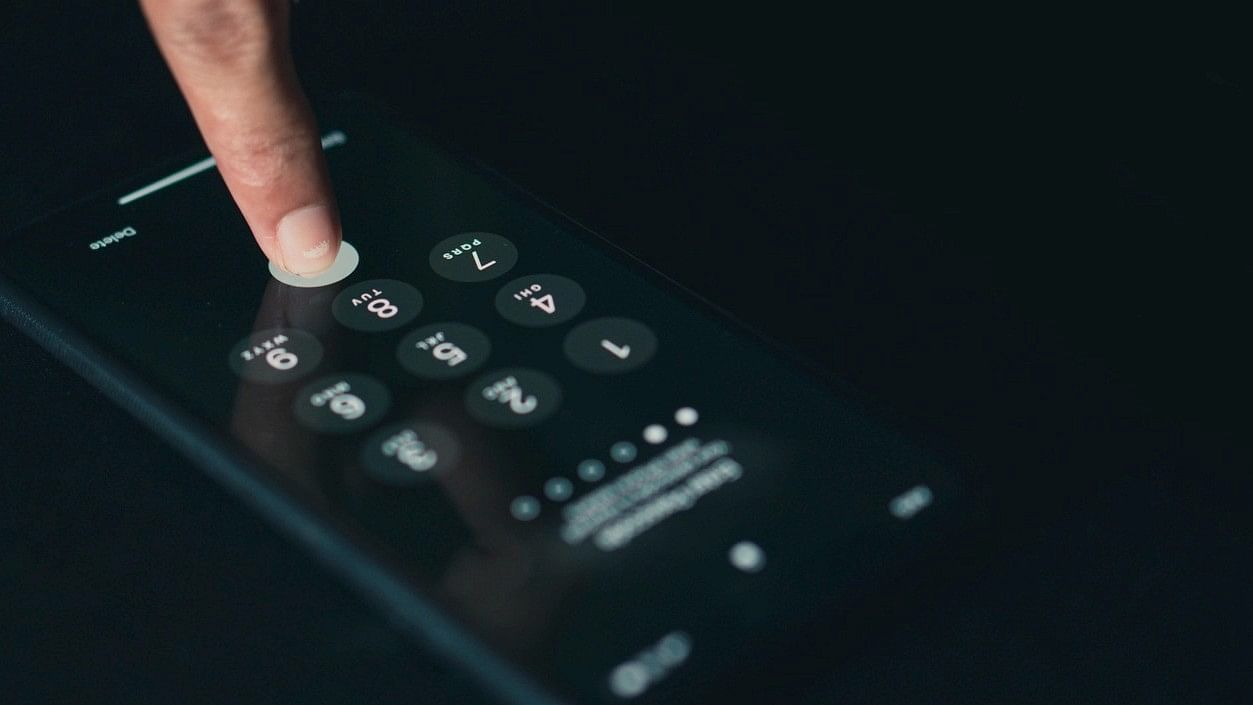
Representative image showing a phone.
Credit: iStock Photo
On Tuesday (October 31), opposition members -- Mallikarjun Kharge, Shashi Tharoor, Rahul Gandhi’s close aides, K C Venugopal, Sitaram Yechury, Akhilesh Yadav and Mahua Moitra received alerts from Apple that there was an illegal attempt to compromise their devices. This has raised concerns over user privacy in India.
Lately, there has been an increase in cases of espionage, with state-sponsored spy agencies and cyber mercenaries targeting high-profile individuals such as investigative journalists, human rights activists, and opposition political party members, to either track their movements or plant fake evidence on their phones with the sole purpose of implicating them in criminal cases.
In some cases, bad actors try to steal private photos/videos/messages on phones of a particular person and leak them on social media platforms in an attempt to carry out a character assassination.
After the Pegasus spyware scandal broke out in 2021, Apple set up an advanced security screening method that can detect any illegal attempt to hack or take control of iPhones around the world (around 150 nations). For security reasons, it does not offer specific details on what improvements it has made to protect the iPhone, as it may allow threat actors to come up with newer ways to attempt hacks that circumvent their security system.
Even Google has improved user privacy security by helping phone owners know which app is accessing critical components such as GPS, camera, and microphone.
Also, both Apple and Google have set up cyber security bounty programmes for freelance researchers, ethical hackers, and corporate internet security companies to detect any loopholes in their respective platforms and help plug them before they get exploited by bad actors.
Here are telltale signs that your phone is hacked:
-- If you notice any unusual activity such as 1) messages that you didn't send 2) deleted items that you didn’t delete, or purchase activity that you don't recognize. It is a clear sign that the account is hacked.
--If your password no longer works or your device was locked or placed in Lost Mode by someone other than you.
-If you find an unfamiliar application and don't remember installing it, remove it immediately
--If your phone is consuming too much internet data than usual
[iOS: Go to Settings >>Mobile Service >> scroll down to see which app is consuming more data]
[Android: Go to Settings >> Network & Internet >> Select Data Usage >> see which apps are consuming more data]
--Abnormal fast draining of battery at random times (Not to be confused with natural decline of older phone's battery power retaining ability)
[iOS: Go to Settings >> Battery to see which apps are using the most battery]
[Android: Go to Settings >> Battery >> Battery usage>> See which apps are consuming the most]
--On phones, whenever an app is using a camera or mic, it lights up an orange/green dot light beside the front camera. If no app is under use, this is a clear indication that someone is listening or recording you
--When GPS is being used, an arrow appears on the top of the screen. This means an app is tracking movements and location of the device. Be sure, only the apps (such as Google Maps, Apple Maps or known navigation applications) selected by you have access to the device's GPS tracking.
-- To check if the phone is forwarding calls or messages to another phone, you can just dial *#67#. It will list all the call forwards and message forwards.
If you notice any suspicious activity, dial #002# on phone to completely disable call and message forward feature.
If any of the Apple devices is already compromised, the company (with appleid@id.apple.com or noreply@apple.com) will alert the concerned person in two ways--
1) By sending the emails and SMS on the iMessage app to registered email-ID and phone numbers
2) By posting a banner on the Apple ID website (he/she has to login).
Also, If there’s ever any suspicious activity associated with any Gmail account, Google (with no-reply@accounts.google.com ID) will let you know quickly so you can secure the data. You will also receive a 'Suspicious sign-in prevented' email to let you know Google blocked someone from accessing your personal account.
Tips on how to safeguard yourself from hacking threats
--Always install apps only from the official Apple App Store/Google Play or Windows Store
--Ensure your device is updated to the latest software version and security firmware
--Use a strong passcode and always try to change it often (at least once or twice a month)
--Ensure email ID is linked with a phone number and a secondary email ID. This will greatly help in recovering hacked account
--Enable two-factor authentication on phone apps, as it almost eliminates the chances of the account getting hacked
-- Whenever a user login to an online account using Apple ID/Gmail ID, the user gets notified through official/personal email ID. If it is not you, then you can block it immediately. Do not waste time. The email comes with 'Review the devices' with the URL. Click on it and stop the illegal login attempt.
-- Make it a habit to do an audit of apps installed on the phone. If you notice any unfamiliar app and can't remember downloading it, delete it immediately. Also, if you haven't used some apps for a long time, just remove it and make space for new apps.
--If you find any unfamiliar app on the phone is consuming cellular data or draining the battery in the background, delete it immediately.
-- Be very careful when clicking URL link in an email or SMS sent from unknown people. Just ignore them.
-- Do not share personal details such as email ID and password to anyone. If you give them to a loved one for an urgent purpose for a limited time; then ensure you change the password after that some time.
--Never ever share financial credentials on email or SMS or on phone calls to any person, even if he/she says they are from bank/government agencies
-- Out of the blue, if you receive any job offer with a big paycheck or million-dollar jackpot prize, ignore the message at all costs. They will try to coax you to pay for processing fees or customs duty. After that, you will never hear back from them.
-- Avoid using public Wi-Fi for personal use, particularly if it involves digital cash transfer
Get the latest news on new launches, gadget reviews, apps, cybersecurity, and more on personal technology only on DH Tech
